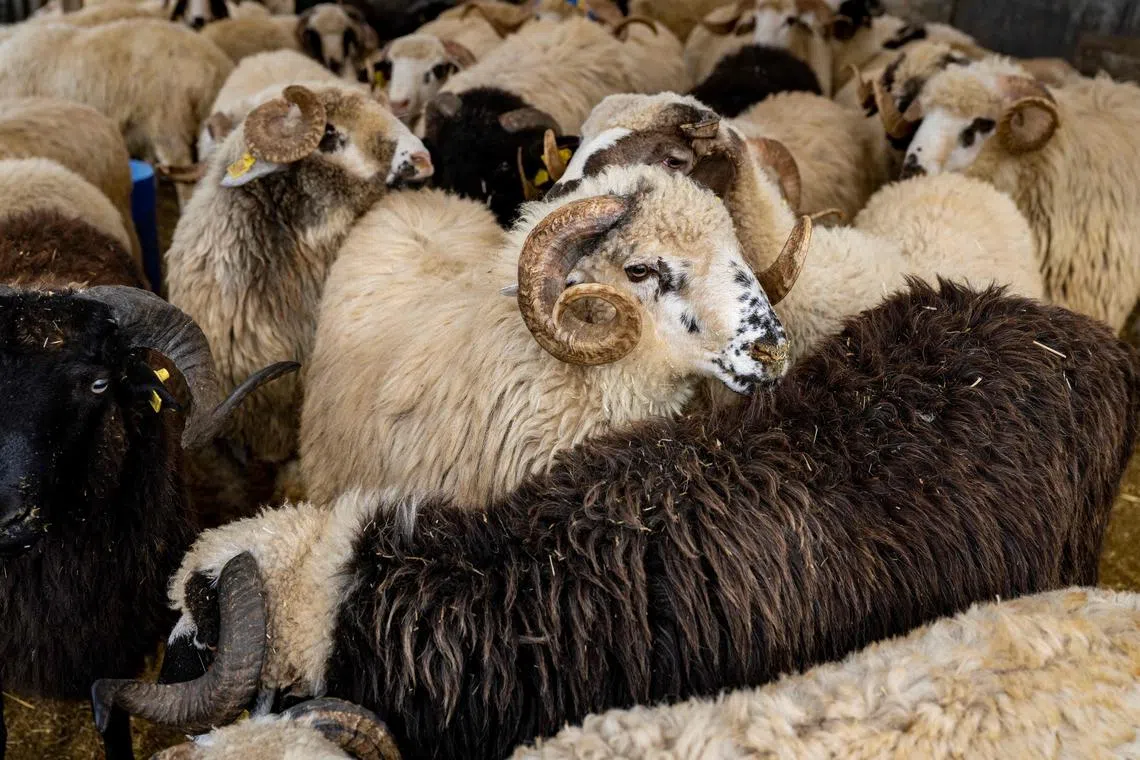Sheep 'buried alive' in Greece amid disease cull
Sign up now: Get ST's newsletters delivered to your inbox

Over 2,400 sheep have been culled in Greece since a first case of PPR sheep and goat plague was detected on July 11.
PHOTO: AFP
ATHENS - A senior veterinary official in Greece was replaced after it emerged that sheep had been “buried alive” in a disease control move, a regional governor said on July 25.
“We received a complaint concerning live animals in the burial process,” Mr Dimitris Kouretas, governor of the central region of Thessaly, told reporters.
“This merits further investigation. For this reason, I replaced the veterinary supervisor” responsible for the area of the incident, Mr Kouretas said.
Officials since early July have been trying to contain an outbreak of sheep and goat plague near the central city of Trikala.
The disease known as Peste des Petits Ruminants, or PPR, is highly contagious to sheep and goats but does not affect humans. Meat and pasteurised milk are also safe to consume, officials said.
The Greek agriculture ministry has said it is the first time the disease has been detected in the country.
Over 2,400 sheep have been culled since the first case was detected on July 11 near the town of Kalabaka, according to the agriculture ministry.
Farmers and officials have said the disease was likely brought into the country by imported livestock.
“Non-stop checks are under way” by scores of vets, Agriculture Minister Kostas Tsiaras told Skai radio, adding that some had interrupted their summer holidays.
Mr Tsiaras noted that Greek farmers had increased animal imports after local flocks were decimated in last year’s disastrous floods caused by Storm Daniel.
Tens of thousands of sheep perished at the time.
Non-EU imports “are mainly from Romania, Turkey and Albania”, the minister said, adding that the animals’ origin would be investigated.
The governor’s office has temporarily shut down local abattoirs and farmers have been instructed to keep their flocks indoors. AFP


